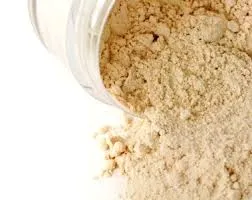The Role of Polymers in Water Treatment
Water treatment is a vital process that ensures the availability of clean and safe water for consumption, industrial uses, and agricultural purposes. Among the various techniques and chemicals used in water purification, polymers play a significant role in enhancing the efficiency and effectiveness of treatment processes. This article will delve into the importance of polymers in water treatment, their types, and their functions.
The Role of Polymers in Water Treatment
One of the key advantages of using polymers in water treatment is their ability to improve the settling rates of particles. Conventional coagulants, such as alum, can be effective; however, when combined with synthetic polymers, the performance can be significantly enhanced. For instance, polyelectrolytes, which are charged polymers, can effectively neutralize the charges of suspended particles, leading to larger flocs that settle more quickly. This not only improves the overall efficiency of the treatment process but also reduces the amount of coagulant chemicals required.
water treatment polymer

Another important application of polymers in water treatment is in the flocculation stage, where the large aggregates formed during coagulation are fostered to further increase their size before separation. Flocculants, which are often high molecular weight polymers, assist in this process by bridging the gaps between particles and promoting the formation of larger, more cohesive flocs. This step is crucial for achieving optimal removal of contaminants, including suspended solids, organic matter, and even microorganisms.
Additionally, polymers are widely used in membrane filtration processes, such as reverse osmosis and ultrafiltration. These membranes can be susceptible to fouling, which diminishes their efficiency and lifespan. Polymer additives can help reduce fouling by inhibiting the adhesion of particles to the membrane surface. Furthermore, polymeric materials are often used to manufacture membranes themselves, enhancing their selective permeability and overall performance in providing clean water.
Moreover, the environmental impact of using polymers in water treatment should not be overlooked. Many modern polymers are designed to be biodegradable or recyclable, aligning with sustainable practices that aim to minimize ecological footprints. By opting for advanced polymer technologies, water treatment facilities can reduce their reliance on harsh chemicals, thereby improving treatment outcomes while also protecting aquatic ecosystems.
In conclusion, polymers are indispensable agents in the water treatment industry, playing crucial roles in coagulation, flocculation, and membrane filtration. Their ability to enhance efficiency, reduce chemical use, and lower operational costs makes them a valuable asset in striving for clean, safe water. As the global demand for clean water continues to rise, innovative polymer technologies will likely play an even more significant role in the development of sustainable water treatment solutions.

